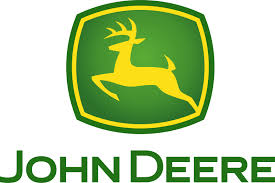Here you can troubleshoot by starting from the vehicle’s user functions.
Navigation for User functions is divided up as follows:
(09.2025)Scania SDP3 2.66.3.3 Diagnosis & Programming Truck Software Download and Installation
- Vehicle
- Group ofuser functions:
The user functions are grouped into catego- ries. Gearbox control is one example of a category.
3 Userfunction
One user function in the Gearbox control category is the Opticruise system.
4 Usecase
Examples of an Opticruise system use case:
– Activation of automatic gear changing
– Selecting gear manually
– Setting the starting gear
( 2025.08 ) Scania SDP3 2.66.2.6.0 Marine & Industry Diagnostic SoftwareDownload and Installation
The content under the different tabs varies, depending on where you are in the navigation tree.
The table gives an indication of what sort of information the tabs contain on the different levels.
|
1 Vehicle |
Fault codes
X |
Description | Check | Function diagram
(Message sequence chart) |
Adjustment |
| 2 Group of user functions | X | X | |||
| 3 User function | X | X | X | X | |
| 4 Application | X | X | |||
| 5 Scenario (different ways in which the use case can be carried out) | X | X |
Fault codes
Here you can see which fault codes are regis- tered for a user function.
Other information relating to fault codes is the same as for fault codes under electrical system.
Scania VCI3 Diagnostic Tool for Scania Trucks Full Chips High Quality
Description
Here you can obtain a brief description of the vehicle’s user functions.
Check
You can carry out checks on some of the vehi- cle’s user functions here. Unlike checks for the Electrical system, these checks may work on several interrelated control units.
- Highlight the user function you want tocheck.
- Press the button for the selected wizardto start the wizard.
Function diagram (Message sequence chart)
The message sequence charts available for a
user function are displayed here. The message sequence charts provide a visual representation of the function. They provide an overview of the control units and other components which are involved in a user function in the specific vehicle. They also show the order in which sig- nals travel between the components concerned.
A blue, broken arrow (1) shows the influence from the circumstances, e.g. the driver turns the starter key.
A blue, continuous arrow (2) shows conven- tional electrics. There must be circuits in the electrical system view to obtain these arrows, e.g. S4 closes + 24 V to E30.
A black arrow (3) displays CAN messages between different control units.
By right-clicking a component (4), you can go to checking the circuit in the electrical system view.


